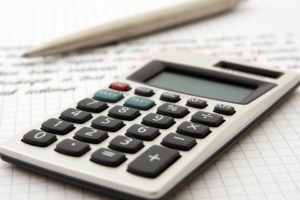Blog
Posted August 19, 2019
How do I pay back a student loan when I am self-employed?
The majority of students leaving university will do so with an outstanding student loan.
The media is full of information on the repayment threshold, interest rates and details of how it is repaid through your salary, but what happens if you are self-employed?
As a contractor, freelancer or business owner your student loan payments will need to be included on your annual self-assessment tax return.
How much can I earn before I start repaying my student loan?
How much you can earn depends on whether you have a plan 1 or plan 2 loan.
Not sure if you have a plan 1 or plan 2 loan, click here to find out.
Plan 1
If your earnings for the 2018/19 tax year are over £18,330 or you have a monthly gross income over £1,527 you will start to repay your loan.
Plan 2
If your earnings for the 2018/19 tax year are over £25,000 or you have a monthly gross income of over £2,083 you will start to repay your loan.
How do I calculate how much I owe?
 To calculate how much you need to repay you need to calculate your annual gross income
To calculate how much you need to repay you need to calculate your annual gross income
To calculate your annual gross income you need to add together your gross salary, gross dividends and any other earnings.
Subtract the threshold that applies to you (For 18/19 either £18,330 or £25,000) from your annual gross income.
Multiply the amount calculated in step 2 by 9%
The figure calculated is the annual repayment amount and needs to be paid to HMRC by 31 January following the end of the tax year. HMRC will then provide details to the student loan company who will adjust the amount outstanding on your loan.
Making over payments or repaying early
There are no penalties for repaying some or all of your loan early. You should contact the Student Loans company directly if you wish to make additional payments against your loan.
SERVICES
LATEST NEWS
CATEGORIES
- Blog (159)
- Business Advice (56)
- Just For Fun (17)
- Tax Tips (45)
- Video (8)











